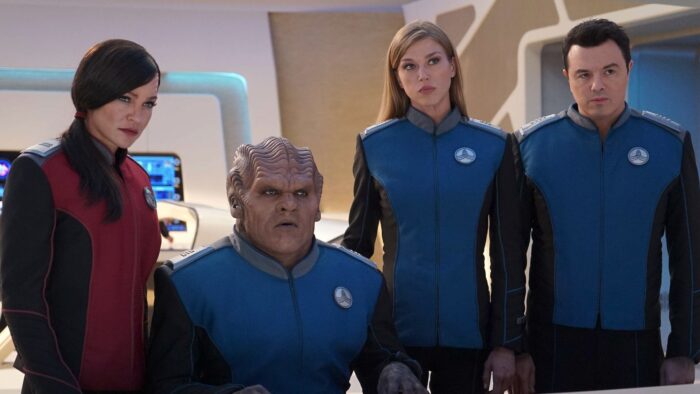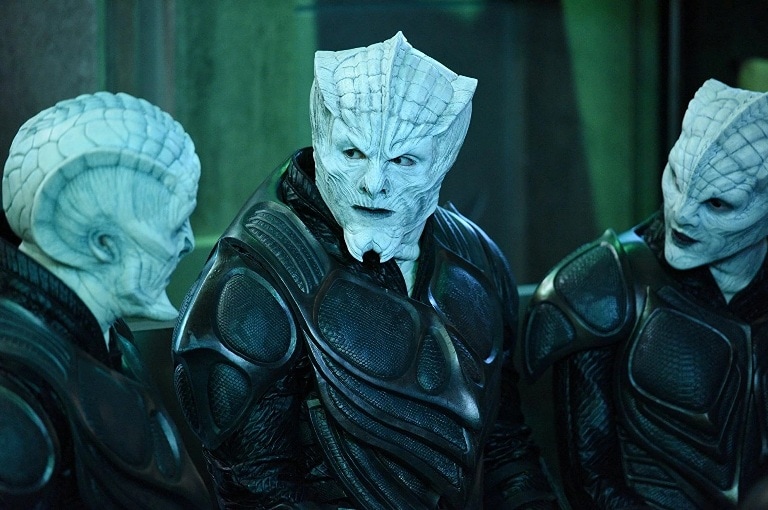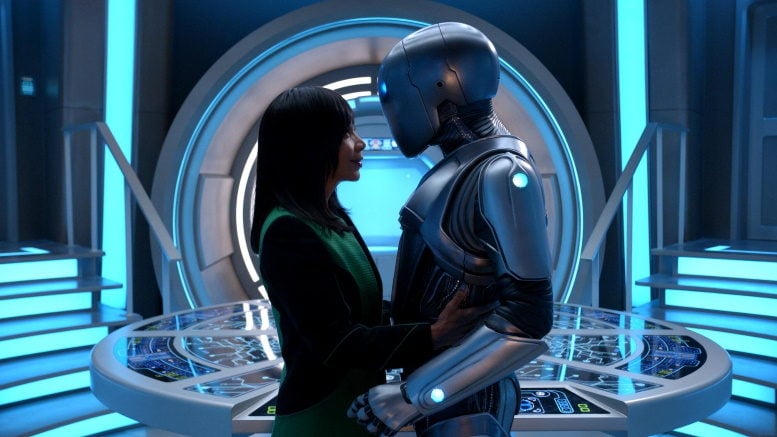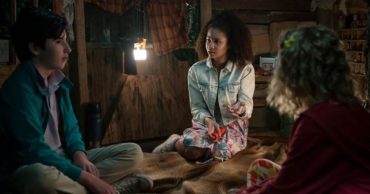The Orville‘s villains unarguably live up to the standards of their predecessors from Star Trek, to a significant extent. It has been established that The Orville is a tribute to the Star Trek franchise, as such, it is only normal for its villains to draw inspiration from the original show. From the Klingon to the Borg and Krall, Star Trek has an army of villains, h0wever, The Orville‘s Kaylon and Krill have given them a run for their money.
The Krill and Kaylon are the major threats in the Planetary Union but before they began to unleash terror on the universe of The Orville, the Tzel (introduced in the comic books) were the primary enemies who killed thousands in a war over a hundred years ago. Overall, what the species have in common is their disregard for other life forms. Much like humans, they see themselves as higher beings that should rule over the universe without competition. Here’s why The Orville‘s villains are more terrifying than they are given credit for.
The Orville Has Never Been Shy About Holding Up a Mirror to Humanity

One thing that makes The Orville‘s villains terrifying is how much they embody a dark truth about humanity. The show has many plotlines that represent certain human beliefs and behaviors, making it feel like looking in the mirror for those who can relate. A good example is how the Krill and Kaylon tend to feel superior over others to the point of seeking to annihilate any lifeform different from theirs. Humans have lived this truth over time, even extending hate to one another, biased by cultural and religious differences.
One of the main villains that posed a threat to the Planetary Union, the Kaylon, are members of the artificial, non-biological race from Kaylon-1. The species have no regard for biological lifeforms which they see as inferior and this includes humans. The Kaylon later embark on a genocide against all biological lifeforms but the Union got help from one of them, Isaac (Mark Jackson), who has a better understanding of human behavior after spending time with the Orville crew.
Another dangerous species that posed a big threat to the Planetary Union and other lifeforms is the Krill, a reptilian species from a planet (Krill) enveloped in perpetual darkness. The aggressiveness of the Krill and their religious disposition make them dangerous to other lifeforms. The Krill worship a vengeful god called Avis who initiated “the divine fight” to destroy all non-Krill beings. To most Krill, other species are not worthy of life and this put them in conflict with every other lifeform. Interestingly, the Krill were not religious fanatics until they discovered that they were not the only species in the universe and this inspired the xenophobia they unleashed on other lifeforms.
The Orville’s Villains Remind Us of Humanity’s Darkest Eras

Granted, The Orville‘s Villains are quite terrifying but if the chaos and bias in the world is anything to go by, humanity is not any better. Throughout civilization, humans preyed on one another, mostly because they allowed their darkest traits like religious extremism and supremacism to envelop their reasoning. Thousands of years after civilization, humanity is yet to shake off these traits that have claimed many lives on account of beliefs that leave no room for accommodating other people’s opinions. Also, the undisguised misogyny of the Moclan speaks volumes about how the female gender has been relegated to oblivion or given little recognition in many cultures.
The Orville Remains Hopeful When It Comes to Its Villains

While The Orville‘s villains are as terrifying as they come, the show remains hopeful about their redemption. So far, this stands out as the biggest strength of the Seth MacFarlane-created American science fiction television series. The wedding between a human (Claire) played by Penny Johnson Jerald and an android (Isaac) in The Orville season 3 is a reminder that different species, irrespective of their belief systems can cohabit peacefully. Again, Bortus’s (Peter Macon) outright resentment over his Moclan planet’s resentment for females is a beacon of hope for the various female Moclans who live in fear of the authorities as though they are committing a crime by merely being alive. In view of this, Bortus fought his partner, Klyden (Chad Coleman) when their first child was born a female but the infant eventually undergoes a procedure to transform it into a male against Bortus’ wishes. All in all, The Orville is at its best when it balances hopefulness against its dark themes.Seth MacFarlane
 Follow Us
Follow Us





